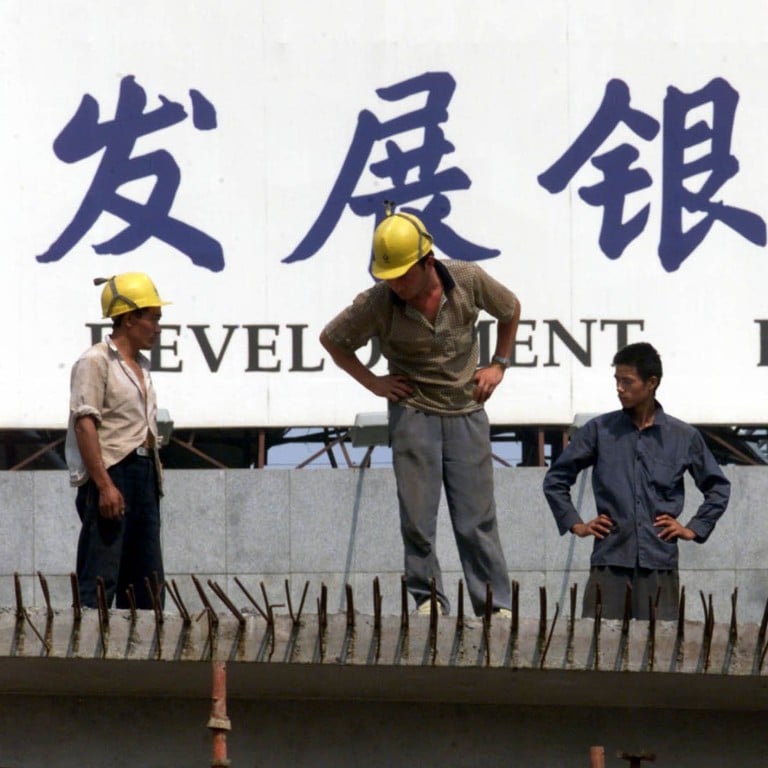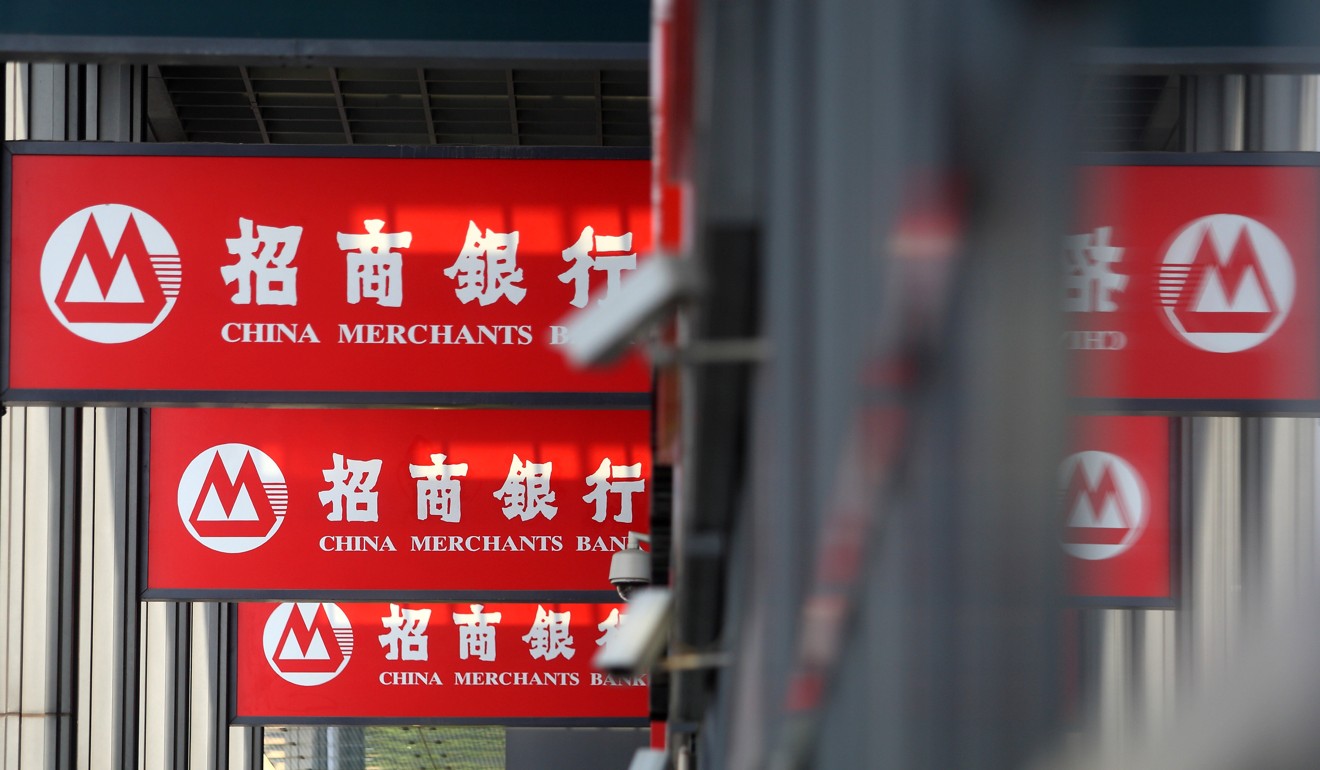
US judge holds three Chinese banks in contempt for refusing to comply with probes into violations of North Korea sanction
- According to court rulings in a 2017 civil forfeiture action, the banks were Bank of Communications, China Merchants Bank and Shanghai Pudong Development Bank
- Pudong Bank stands at risk of losing access to US dollars, the lifeblood of global finance
A US judge has found three large Chinese banks in contempt for refusing to comply with subpoenas in an investigation into North Korean sanctions violations. The order triggers for the first time a provision that could cut off one of China’s largest banks from the US financial system at the demand of the US attorney general or treasury secretary.
The three banks are not identified, but details in court rulings align with a 2017 civil forfeiture action in which the Justice Department alleged that China’s state-owned Bank of Communications, China Merchants Bank and Shanghai Pudong Development Bank (SPDB) worked with a Hong Kong front company accused of laundering more than US$100 million for North Korea’s sanctioned, state-run Foreign Trade Bank.
SPDB has no US branch but maintains accounts here to handle US dollar transactions. The ruling means that Attorney General William Barr or Treasury Secretary Steven Mnuchin can terminate the bank’s US account and ability to process US dollar transactions – a potentially crippling, if not lethal, punishment in global trade.
The threat from US investigators probing whether the banks knowingly helped finance North Korea’s nuclear proliferation network comes at a time of spiralling US-China economic relations, when the collapse of trade talks this spring triggered retaliatory tariffs and other measures.
Chinese banks dismiss US’s North Korea sanctions breach charges
The Justice Department referred questions about the bank case to the office of US Attorney Jessie K. Liu of Washington DC, which is leading the investigation. A spokeswoman for Liu’s office declined to comment about whether the government is considering invoking the penalty.
Shanghai Pudong Development Bank officials and the Chinese Embassy in Washington did not respond to requests for comment. US-based lawyers for SPDB and the two other banks declined to comment on the subpoena battle, which will go before a federal appeals court in Washington on July 12.
In the banks’ case, a court opinion by Chief Judge Beryl A. Howell of the US District Court for the District of Columbia unsealed May 15 revealed she had found three banks in contempt for ignoring grand jury demands, and specified for the first time that the third bank violated an administrative subpoena issued under the USA Patriot Act.
In court filings, the third bank has challenged the US court’s jurisdiction to find it in contempt while it appeals the subpoena, even as it has asked Beijing authorities for permission to turn over documents.
Each of the three banks say it acted in good faith under Chinese banking customer privacy laws, arguing the Chinese government requires requests for banking records in US criminal inquiries to be made through a legal assistance pact between the two countries.
China, Russia thwart UN accusation of North Korea sanctions violation
Howell dismissed that argument, citing among other reasons China’s dismal compliance record with such requests; Washington’s “critical” national security interest in countering North Korea’s nuclear weapons and ballistic-missile programmes; and the “overblown” prospect that the banks would be punished at home because each is partly or wholly owned by the state.
A foreign bank has been ordered by a US court to comply with a subpoena under the same section of the act once before, in 2010, but in that case a small Saudi bank quickly complied in a tax dispute over a single customer cashing US$151,000 in unreported traveller’s and cashier’s cheques, pre-empting further government action.
The current case marks the first time a US court has upheld subpoenas to a Chinese bank in a criminal sanctions probe, raising national security stakes in a debate over whether to invoke the financial penalty prosecutors informally refer to as a “death sentence” because of its potential to kill a bank’s business.
Imposing the penalty would send a powerful message to China but carries short- and long-term risks for the global banking system, financial and international legal experts said.
The Patriot Act proceeding shows how the US government and the Justice Department “have taken the gloves off”with Chinese companies, said Julian Ku, a Hofstra University law professor who has studied China’s relationship with international law.
“The US government is no longer afraid or reluctant to bring its most aggressive legal authorities against Chinese banks and companies,” said Ku. “I doubt this kind of action would have been brought even two years ago, but it is a sign of the new US-China relationship that this kind of law-enforcement action may become the norm in the future.”

But Lanier Saperstein, an international banking expert who co-chairs law firm Dorsey & Whitney’s US-China practice group, cautioned, “There definitely is a home-field advantage in terms of US courts forcing foreign banks to turn over documents, and that undermines the credibility of our court system, while increasing the risk of US companies facing reciprocal treatment” abroad.
More broadly, he said, “it could deter financial institutions from coming to the United States. That would make it even harder to follow the flow of money,” and complicate the international cooperation needed to battle money laundering and terror-financing globally.
Former US officials said the Justice Department in the banking case appears to be crafting a new set of its own tools to apply escalating pressure against entire economic sectors through key players, much as it is doing with Huawei and telecommunications.
Although it may be possible to threaten to take a scalpel to cut SPDB’s bank account access in the United States, excising larger Chinese banks from the US marketplace over sanctions violations would be a much trickier prospect and require new measures, said Michael Greenwald, a senior Treasury diplomatic attaché and policy adviser who worked on terrorism sanctions from 2010 to 2017, including against Russia.
The Shanghai bank, while large at home, has a negligible global footprint, he said. Yet many of China’s larger banks are bigger than US banks deemed “too big to fail,” and cutting them off from dollar transactions could trigger a cascade of effects that would disrupt the world economy.
In the latest case, prosecutors with the US attorney’s office for the District of Columbia obtained a court order April 10 fining each of the three banks US$50,000 a day. The fines are stayed pending an expedited appeal by the banks.
The parties “here are multibillion-dollar banks disregarding an order to produce records or a witness essential to an investigation into a state-sponsor of terrorism’s proliferation of nuclear weapons,” Howell said. “Minor fines would hardly be felt,” she warned, adding that if US$50,000 a day “does not induce compliance, sanctions may be increased.”
Howell’s two opinions do not identify the banks, but in the 2017 civil forfeiture case, US prosecutors named the trio that worked with a sanctioned Hong Kong firm -the now-defunct Mingzheng International Trading Limited.
A federal judge in 2018 granted prosecutors’ request and turned over US$1.9 million in seized accounts to the US government after Mingzheng and its transaction partners failed to reply in court.
Howell, a Patriot Act specialist, underscored that despite Chinese warnings of potential “reciprocal” economic and security consequences for American interests, “the requested records are essential to an investigation into a matter of national security,” and not producing them “threatens tremendous harm.”
The Beijing government has consistently held the position taken by the three banks that Chinese banking customer privacy laws prohibit compliance with Justice Department demands for financial records. SPDB argued that the mere confirmation of a US court’s contempt finding would trigger higher regulatory scrutiny from other countries and irreparably harm its reputation.
Joshua Stanton, who runs the site One Free Korea and has advised House and Senate staffers on North Korea sanctions law, said it was striking that the Chinese banks continue to fight the US subpoenas, unlike American or European counterparts, which typically quickly comply.
“These things usually don’t go this far … so why are the banks fighting this?” he said, risking litigation and reputational costs for failing to turn over records in a money-laundering probe. “My guess is that they have calculated there’s something in those documents they don’t want the feds to see.”
For example, he said, if records were to show the banks knew or should have known that Mingzheng was involved in sanctions violations, or that elements of the Chinese government looked the other way, the banks could face civil and criminal penalties like European banks, from which the US government has collected billions in fines and forfeitures in recent years for allegedly facilitating violations of sanctions by Iran, Sudan or Cuba.
Whatever the outcome, Stanton said, the fight almost certainly signals a further disengagement between the US and Chinese economies.
“We have a big clash of two very different business cultures here,” and Chinese business compliance with US financial laws “is where these two tectonic plates grind against each other,” said Stanton.

